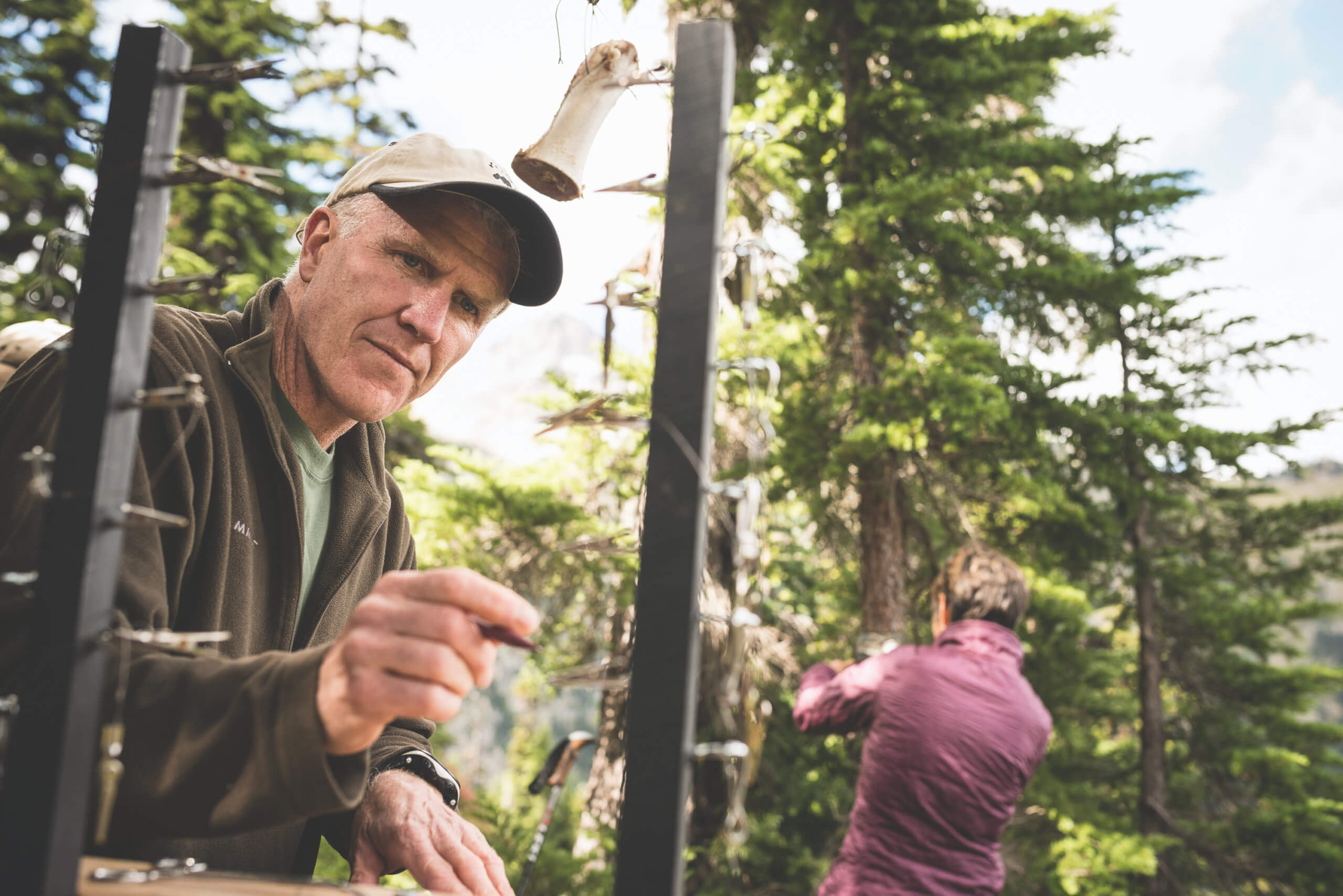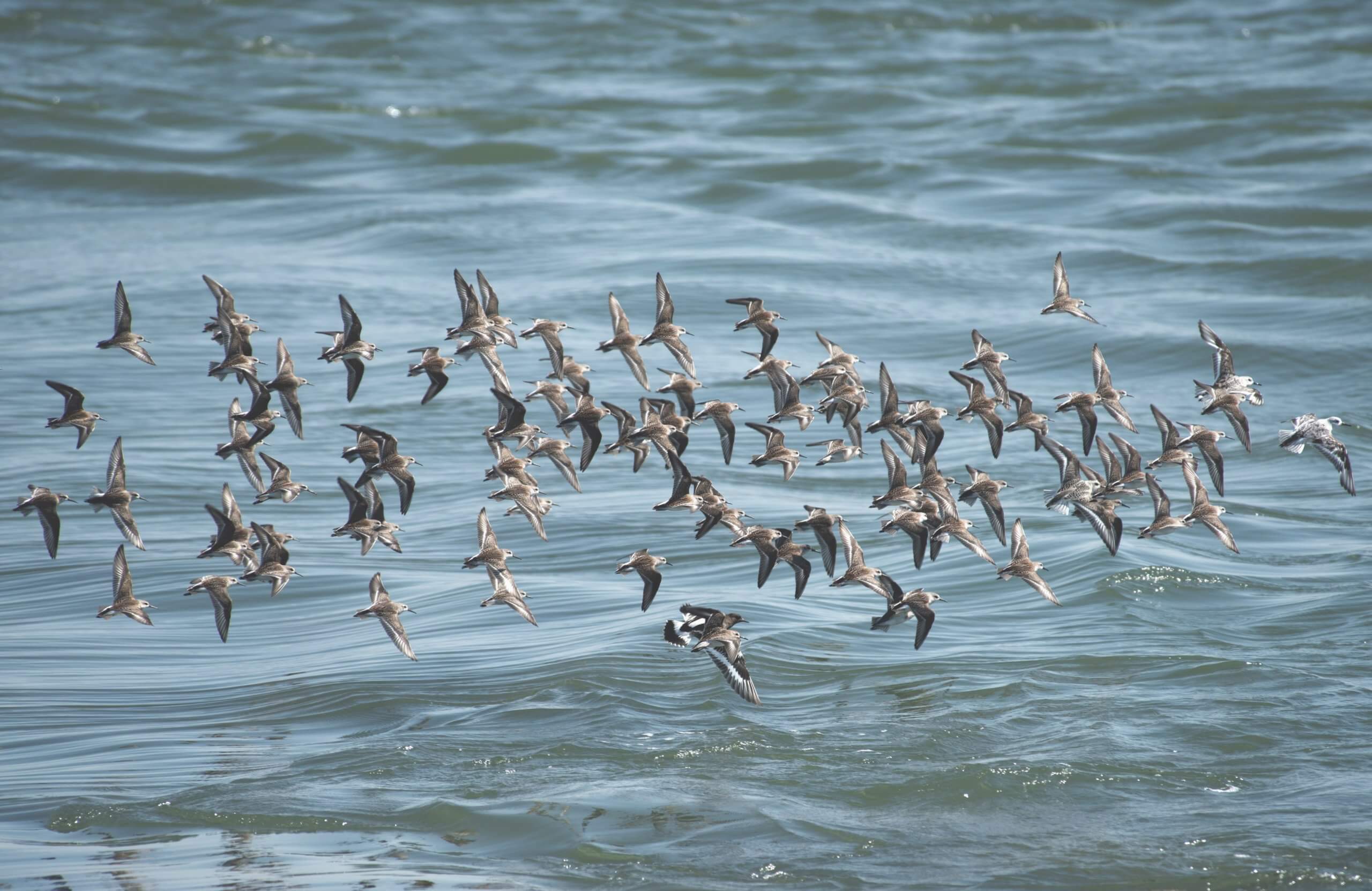By Liz Neeley and Erica Goldman
Published January 8, 2014
Title: Reporting Back And Looking Forward From #GradSciComm
Categories: Communication, About COMPASS, Science
Tags: Liz Neeley, Erica Goldman, careers, evaluating, frames, funding, goals, GradSciComm, graduate school, more resources, motivation, presenting, tools, writing
This post is co-authored by Liz Neeley and Erica Goldman. It is a continuation of our series on our NSF-funded GradSciComm project.
It was approaching midnight on December 5, 2013, and the COMPASS team was running out of gas. We were in the middle of our two-day #GradSciComm meeting at the National Academy of Sciences. “The only way out is through,” we told ourselves, bleary eyed and punchy with fatigue.
Day 1 had gone quite well. Our stellar group of participants – science communication researchers, practitioners, administrators, and graduate student leaders from a range of STEM disciplines – had engaged with an enthusiasm that was more than we could have hoped for. They were brimming with ideas of what might be done. Yet we were struggling with how to coalesce all of the insights from Day 1 to move ahead in working groups on Day 2. One particular roadblock felt like it was obstructing every path forward: the lack of funding.
Around and around we went, until suddenly – a breakthrough! What would happen if we stop thinking of funding as a roadblock… and instead think of it as a solution to obstacles we face in teaching and conducting effective science communication? What are the first and most transformative investments that we could make? Once we demolished that roadblock, all the pieces began to fall into place. We powered through a synthesis of the discussions from Day 1, locked down the specifics for breakout group assignments, and were ready to charge into Day 2.
The next morning, we held our breaths, watching the room as we unveiled a reframing of our collective task. We had originally believed it was “mapping a course to improve national training capacity in science communication for STEM graduate students.” However, our discussions had made us realize that communication skills cannot be thought of as extras to be bolted onto existing graduate education structures. They are fundamental competencies that need to be woven throughout training.
Our task is in fact, “mapping the pathways to integrate science communication core competencies into STEM graduate student training.” Of course funding is a real-world limitation, but we can’t move forward until we start asking about how we should use it to pave those pathways.
An audible murmur of accord affirmed our midnight breakthrough. The rest of the second day flew past with highly motivated teams working and sharing their visions of how to progress. We collectively closed out 2013 on the high of a successful event and the promise of more great things to come.
OUR TAKEAWAYS:
The group focused on how we might align incentives to give graduate students the motivation and permission to include science communication in their training. We identified that students will need to know what options are available to them and have tools at their disposal, such as individual development plans, that allow them to tailor their skill development to their preferred career trajectories. The group also discussed the critical importance of monitoring and evaluation as a cornerstone of effective practice in communication training.
Here is the one-page summary of the outcomes of our discussions, and you can explore deeper with the presentations we gave on site.
The Summary
Slides from Day 1
Slides from Day 2
WHAT’S NEXT:
• Writing the roadmap. COMPASS is taking the lead on writing a series of documents, collectively called “the #gradscicomm roadmap.” We envision this as something like a tiered layer cake: at the top, a single-page, visual representation of our theory of change. Supporting that, a multipage report outlining the work we’ve conducted, a brief literature review, and summary of the workshop and findings. And finally, we expect other products, likely to include presentations and submissions to the peer-reviewed literature.
• AAAS in Chicago this February. In our first public presentation, find Erica and Brooke leading the session, “Building National Capacity in Science Communication for STEM Graduate Students” on Valentine’s Day morning. It features many of our workshop participants, and many more will be in attendance. Join us for a meet-up later to continue the conversations in a more social setting (to be scheduled – we’ll update with details ASAP!)
• University courses. Like many of the other workshop participants, beginning in mid-January, Liz starts teaching her ENVIR500 series again at University of Washington. This is a series of 1-credit short courses in science communication, based on COMPASS workshops, and designed for PhD students in the College of the Environment and beyond. If you’d like to swap syllabi & advice about teaching, please reach out.
We’d love to hear from you with ideas and opportunities as we write up and push forward. Please be in touch with us by email or comment on this post to share your thoughts. We are invigorated by where 2013 has brought the #gradscicomm effort and are looking forward to the New Year with energy and anticipation.
This material is based upon work supported by the National Science Foundation under Grant Number 1255633. Any opinions, findings, and conclusions or recommendations expressed in this material are those of the author(s) and do not necessarily reflect the views of the National Science Foundation.
Liz Neeley worked at COMPASS from 2008-2015. This post was transferred from its original location at www.compassonline.org to www.COMPASSscicomm.org, August 2017.



